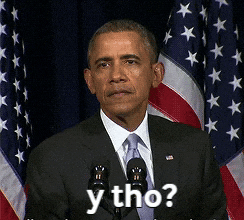- Finterview
- Posts
- 🚨 SBF Sentenced to 25 Years
🚨 SBF Sentenced to 25 Years
How did you know you wanted to do investment banking?
⏱ Reading Time: 2 Minutes 38 Seconds
Happy Thursday, future bankers!
Hope everyone is doing well! Today we’re covering GAAP and non-GAAP measures, how you knew you wanted to do investment banking, and Sam Bankman-Fried’s sentencing.
🚀 Let’s get into it.
🔢 Technical Question

Gif by travisband on Giphy
Why do companies report both GAAP and non-GAAP measures?
Companies report both GAAP (Generally Accepted Accounting Principles) and non-GAAP measures to provide a more comprehensive and clear picture of their financial performance. Here’s why:
GAAP Measures: GAAP is a standardized set of accounting principles, procedures, and standards established by the Financial Accounting Standards Board (FASB). It ensures consistency and comparability across companies and industries. This makes it easier for investors, regulators, and other stakeholders to understand and compare financial statements.
Non-GAAP Measures: These are financial measures that do not conform to GAAP. Companies use non-GAAP measures to supplement their GAAP financials because they believe these measures might provide a better understanding of their performance. Non-GAAP measures can exclude items that the company believes are not indicative of its core operating performance, such as restructuring costs, acquisition-related expenses, or other non-recurring items.
However, it’s important to note that while non-GAAP measures can provide additional insight, they also have limitations. They are not standardized, so they may not be comparable across companies. Also, there’s a risk that companies might use non-GAAP measures to present a more favorable picture of their financial performance. Therefore, both GAAP and non-GAAP measures should be considered together to get a complete understanding of a company’s financial performance.
🗣 Behavioral Question

Gif by lilly on Giphy
How did you know you wanted to do investment banking?
In response to the question “How did you know you wanted to do investment banking?”, you could structure your answer around three main points:
Interest in Finance and Markets: You could start by explaining your interest in finance and how it developed. Perhaps you took a course in college that sparked your interest, or maybe you’ve always been fascinated by the financial markets and the role investment banks play in it.
Skills and Strengths: Discuss the skills and strengths that make you a good fit for investment banking. This could include analytical skills, attention to detail, ability to work under pressure, and strong communication skills. You could provide examples of how you’ve demonstrated these skills in the past.
Experience and Exposure: Talk about any internships, projects, or experiences that gave you exposure to investment banking and solidified your interest. This could be a previous internship at a financial institution, a finance club you were part of, or a relevant project you completed.
Remember, it’s important to be genuine and personal in your response. Share your own experiences and reasons, and convey your interest for investment banking. This will help you stand out and leave a memorable impression.
🗞 Industry News

🚨 SBF Sentenced to 25 Years
Sam Bankman-Fried, the co-founder of FTX, has been sentenced to 25 years in prison for defrauding his customers, investors, and lenders. The sentence was handed down by US Judge Lewis Kaplan in a Manhattan federal court. Despite facing up to 110 years, Bankman-Fried’s lawyers argued for a lighter sentence of six and a half years. In his final statement, Bankman-Fried expressed remorse for his actions, stating that what happened at FTX “haunts me” and that he made “a lot of mistakes.”
The sentencing marks the end of a dramatic fall for Bankman-Fried, who was once a billionaire and ran the world’s second-largest crypto exchange. His empire collapsed in late 2022 when FTX filed for bankruptcy and he was arrested in the Bahamas. During his trial, prosecutors argued that Bankman-Fried deliberately stole up to $14 billion in customer deposits from his cryptocurrency exchange. Despite this, Bankman-Fried maintained that poor business decisions and management mistakes, not fraud, were to blame for the collapse of his cryptocurrency exchange.
Read more about this story below.
Thanks for tuning in today! Best of luck to everyone working through recruiting right now. If you sign an offer, reply to this email and let us know about it! Like seriously, do it—we’d love to hear about it!
-The Finterview Team